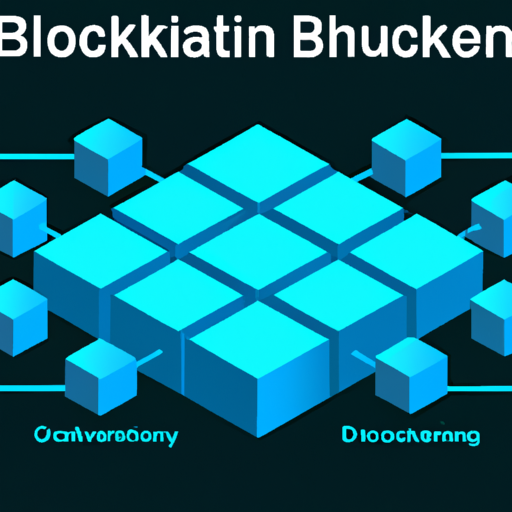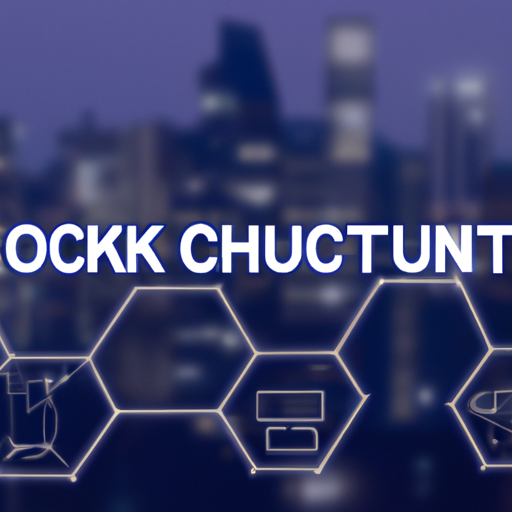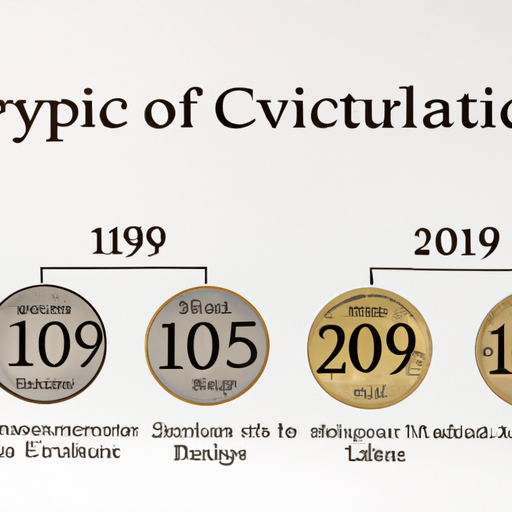-
Table of Contents
- Introduction
- How Blockchain is Transforming the Banking and Financial Services Industry
- Exploring the Use Cases of Blockchain in the Supply Chain Sector
- Examining the Benefits of Blockchain in the Healthcare Industry
- How Blockchain is Revolutionizing the Voting Process
- Exploring the Use Cases of Blockchain in the Real Estate Sector
- Conclusion
“Unlock the Potential of Blockchain: Transform Your Sector with Use Cases.”
Introduction
Blockchain technology has the potential to revolutionize many different sectors, from voting to real estate. By leveraging the distributed ledger technology of blockchain, organizations can create secure, transparent, and immutable records of transactions. This can help to reduce fraud, increase efficiency, and improve trust in the system. In this article, we will explore the use cases for blockchain in various sectors, such as voting, real estate, healthcare, and more. We will discuss the potential benefits of blockchain technology in each sector, as well as the challenges that need to be addressed in order to make these use cases successful.
How Blockchain is Transforming the Banking and Financial Services Industry
The banking and financial services industry is undergoing a major transformation due to the emergence of blockchain technology. Blockchain is a distributed ledger technology that enables secure, transparent, and immutable transactions. It has the potential to revolutionize the way financial services are provided, from payments and settlements to asset management and trading.
Blockchain technology offers a number of advantages over traditional banking systems. It is secure, as it uses cryptography to protect data and transactions. It is also transparent, as all transactions are recorded on a public ledger. This makes it difficult for fraudsters to manipulate the system. Additionally, blockchain is immutable, meaning that once a transaction is recorded, it cannot be changed or reversed.
Blockchain technology is already being used in a number of ways in the banking and financial services industry. For example, it is being used to facilitate cross-border payments, which are faster and more secure than traditional methods. It is also being used to create digital currencies, such as Bitcoin, which can be used to make payments and store value.
In addition, blockchain technology is being used to create smart contracts, which are self-executing contracts that are stored on the blockchain. These contracts can be used to automate a variety of financial services, such as loan agreements, insurance policies, and derivatives trading.
Finally, blockchain technology is being used to create distributed ledgers, which are shared databases that can be used to store and manage financial data. These ledgers are secure, transparent, and immutable, making them ideal for storing sensitive financial information.
The banking and financial services industry is undergoing a major transformation due to the emergence of blockchain technology. This technology offers a number of advantages over traditional banking systems, including increased security, transparency, and immutability. It is already being used in a number of ways, from facilitating cross-border payments to creating digital currencies and smart contracts. As the technology continues to evolve, it is likely to have a profound impact on the banking and financial services industry.
Exploring the Use Cases of Blockchain in the Supply Chain Sector
The supply chain sector is one of the most important industries in the world, as it is responsible for the transportation of goods and services from one point to another. As such, it is essential that the supply chain sector is efficient and secure. Blockchain technology has the potential to revolutionize the supply chain sector by providing a secure and transparent platform for the exchange of goods and services.
Blockchain technology is a distributed ledger system that records and stores data in a secure and immutable manner. It is a decentralized system that is not controlled by any single entity, making it highly secure and reliable. This makes it an ideal platform for the supply chain sector, as it can provide a secure and transparent platform for the exchange of goods and services.
One of the most important use cases of blockchain in the supply chain sector is the tracking of goods and services. By using blockchain technology, companies can track the movement of goods and services from one point to another. This can help to ensure that goods and services are delivered on time and in the right condition. Additionally, it can help to reduce the risk of fraud and theft, as all transactions are recorded on the blockchain and can be easily tracked.
Another use case of blockchain in the supply chain sector is the automation of processes. By using smart contracts, companies can automate certain processes such as payments, invoicing, and inventory management. This can help to reduce costs and improve efficiency, as manual processes are no longer required.
Finally, blockchain technology can also be used to improve the security of the supply chain sector. By using blockchain technology, companies can ensure that all transactions are secure and immutable. This can help to reduce the risk of fraud and theft, as all transactions are recorded on the blockchain and can be easily tracked.
In conclusion, blockchain technology has the potential to revolutionize the supply chain sector by providing a secure and transparent platform for the exchange of goods and services. By using blockchain technology, companies can track the movement of goods and services, automate certain processes, and improve the security of the supply chain sector. As such, it is clear that blockchain technology has the potential to revolutionize the supply chain sector and make it more efficient and secure.
Examining the Benefits of Blockchain in the Healthcare Industry
The healthcare industry is rapidly evolving, and blockchain technology is playing an increasingly important role in its development. Blockchain is a distributed ledger technology that enables secure, transparent, and immutable data storage and transfer. It has the potential to revolutionize the healthcare industry by providing a secure platform for the storage and exchange of patient data, improving the accuracy and efficiency of medical records, and reducing the cost of healthcare services.
Blockchain technology can be used to securely store and share patient data. By using a distributed ledger, patient data can be securely stored and accessed by authorized parties. This eliminates the need for a centralized database, which can be vulnerable to data breaches. Additionally, blockchain technology can be used to ensure the accuracy of medical records. By using a distributed ledger, medical records can be securely stored and updated in real-time, ensuring that all parties have access to the most up-to-date information.
Blockchain technology can also be used to reduce the cost of healthcare services. By using a distributed ledger, healthcare providers can securely store and share patient data, eliminating the need for costly administrative processes. Additionally, blockchain technology can be used to facilitate the secure transfer of payments between healthcare providers and patients, reducing the cost of healthcare services.
Finally, blockchain technology can be used to improve the accuracy and efficiency of medical research. By using a distributed ledger, researchers can securely store and share data, eliminating the need for costly administrative processes. Additionally, blockchain technology can be used to facilitate the secure transfer of payments between researchers and patients, reducing the cost of medical research.
In conclusion, blockchain technology has the potential to revolutionize the healthcare industry by providing a secure platform for the storage and exchange of patient data, improving the accuracy and efficiency of medical records, and reducing the cost of healthcare services. As the healthcare industry continues to evolve, blockchain technology will play an increasingly important role in its development.
How Blockchain is Revolutionizing the Voting Process
The voting process is a cornerstone of democracy, and it is essential that it is secure, transparent, and efficient. In recent years, the emergence of blockchain technology has presented a potential solution to many of the issues that have plagued the voting process. Blockchain is a distributed ledger technology that is secure, immutable, and transparent. It has the potential to revolutionize the voting process by providing a secure, transparent, and efficient way to cast and count votes.
Blockchain technology can be used to create a secure digital voting system. By using blockchain, votes can be securely stored and tracked, ensuring that they are not tampered with or altered. This would make it much more difficult for anyone to commit voter fraud or manipulate the results of an election. Additionally, blockchain technology can be used to create a secure digital identity system, which would allow voters to securely and easily verify their identity when casting their vote.
Blockchain technology can also be used to create a transparent voting system. By using blockchain, all votes can be tracked and verified in real-time, allowing for greater transparency in the voting process. This would make it much easier to detect any potential fraud or manipulation of the results. Additionally, blockchain technology can be used to create a secure and efficient way to count votes. By using blockchain, votes can be counted quickly and accurately, ensuring that the results of an election are accurate and reliable.
Overall, blockchain technology has the potential to revolutionize the voting process. By providing a secure, transparent, and efficient way to cast and count votes, blockchain technology can help ensure that the voting process is secure, transparent, and efficient. This would make it much more difficult for anyone to commit voter fraud or manipulate the results of an election, and it would also make it much easier to detect any potential fraud or manipulation of the results. As such, blockchain technology has the potential to revolutionize the voting process and ensure that democracy is secure, transparent, and efficient.
Exploring the Use Cases of Blockchain in the Real Estate Sector
The real estate sector is one of the most important industries in the world, and it is also one of the most complex. With the emergence of blockchain technology, the sector is now being revolutionized. Blockchain technology has the potential to revolutionize the real estate sector by providing a secure, transparent, and efficient way to manage transactions.
Blockchain technology can be used to streamline the process of buying and selling real estate. By using blockchain, buyers and sellers can securely and quickly transfer ownership of a property without the need for a third-party intermediary. This can reduce the time and cost associated with traditional real estate transactions. Additionally, blockchain technology can be used to store and manage property records, such as title deeds, mortgages, and other documents. This can help to reduce the risk of fraud and ensure that all records are accurate and up-to-date.
Blockchain technology can also be used to facilitate the rental process. By using smart contracts, landlords and tenants can securely and quickly enter into rental agreements. Smart contracts can also be used to automate the payment process, ensuring that rent is paid on time and that all parties are held accountable.
Finally, blockchain technology can be used to facilitate the development of real estate projects. By using blockchain, developers can securely and quickly raise funds for their projects. This can help to reduce the cost and time associated with traditional fundraising methods. Additionally, blockchain technology can be used to track the progress of a project, ensuring that all parties are held accountable and that the project is completed on time and on budget.
In conclusion, blockchain technology has the potential to revolutionize the real estate sector by providing a secure, transparent, and efficient way to manage transactions. By using blockchain, buyers and sellers can securely and quickly transfer ownership of a property, landlords and tenants can securely and quickly enter into rental agreements, and developers can securely and quickly raise funds for their projects. As the technology continues to evolve, it is likely that blockchain will become an integral part of the real estate sector.
Conclusion
In conclusion, blockchain technology has the potential to revolutionize many sectors, including voting, real estate, and more. Use cases for blockchain in these sectors are still being explored, but the potential for increased security, transparency, and efficiency is clear. As the technology continues to evolve, more use cases for blockchain in various sectors will be discovered, and the possibilities are endless.




